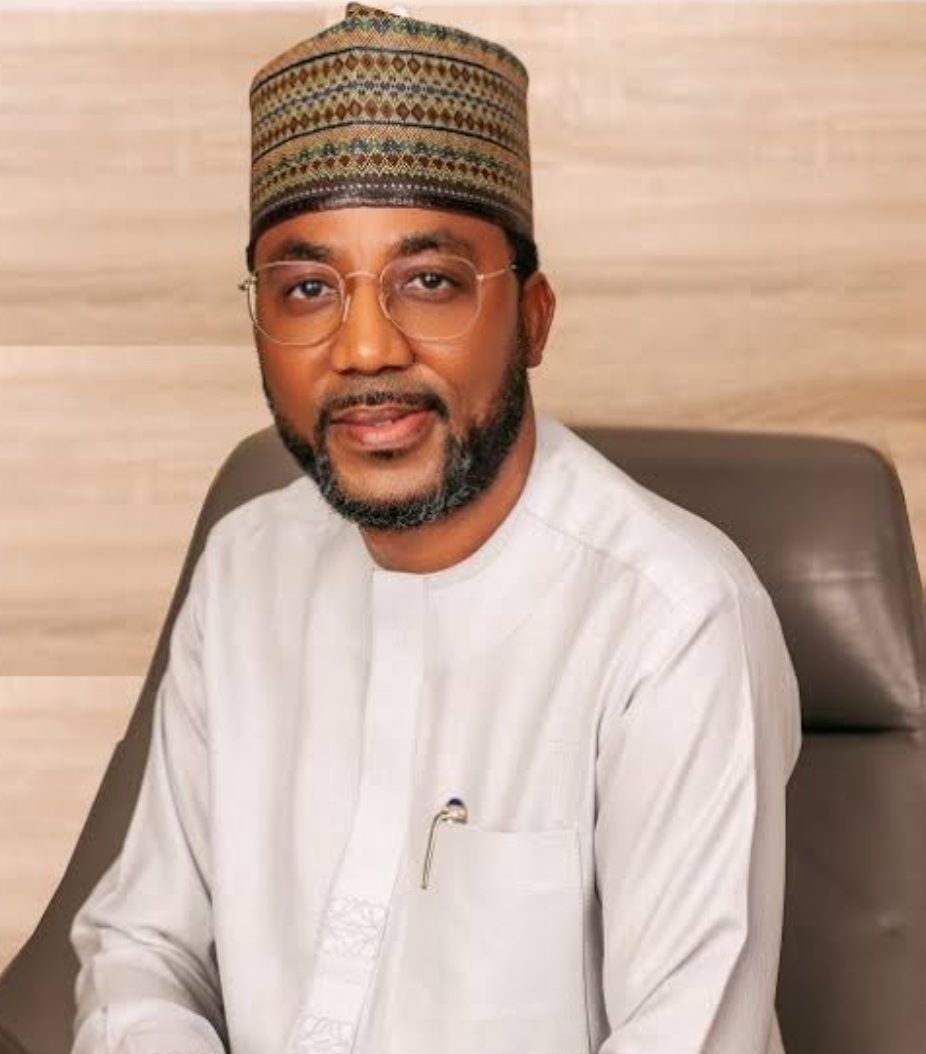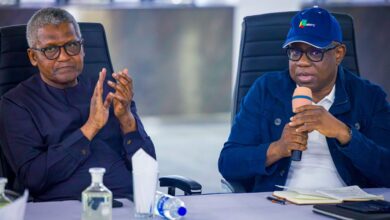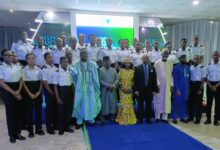
Managing Director of Nigerian Ports Authority, Mohammed Bello-Koko is setting Nigeria on the path of economic recovery through efforts to make the nation’s ports more viable and responsive to her economic realities
Aside deliberately facilitating smooth commencement of the Lekki Deep Sea Port in Lagos, the Nigerian Ports Authority (NPA) under the watch of Mohammed Bello-Koko, has stepped up moves to make ports in Nigeria serve more viable purposes for trade in the overall interests of investors, professionals and port users.
Findings have shown Bello-Koko’s relentless efforts to make the legacy ports of Apapa, Tin Can, Port Harcourt,Calabar, Onne, Warri and others more productive while bringing a blend of modernisation through the Port Community System.
Under Bello-Koko’s watch the NPA played an encouraging and facilitating role to see the realisation and full take off of the Lekki Deep Seaport. The Lekki Port has proven to be a model and signpost of Nigeria’s readiness to become a maritime hub zone in the West and Central African region.
He has vigorously pursued a port community system (PCS) that will integrate all players in the nation’s port system into a single window template. This giant step has gotten the buy in of other critical partners like the Nigeria Customs Service (NCS) and the parent ministry- Federal Ministry of Marine and Blue Economy.
The Federal Government of Nigeria, represented by the Minister of Marine and Blue Economy, Adegboyega Oyetola on Tuesday February 13, 2024 in Abuja, formally received the consultant’s report for the implementation of Nigeria’s Port Community System from the Nigerian Ports Authority NPA, and the International Port Community Systems Association IPCSA.
The primary objective of the PCS is to enable the country comply with the provisions of the Convention on Facilitation of International Maritime Traffic FAL of the International Maritime Organisation IMO, whose main objectives are to prevent unnecessary delays in maritime traffic, aid cooperation between governments, and to secure the highest practicable degree of uniformity in formalities and other trade procedures.
Under the FAL Convention of April 2019, it is mandatory for ships and ports to exchange FAL declarations electronically preparatory to the enforcement of the single window approach in 2024.
Speaking during the event, Oyetola said: “on behalf Federal Ministry of Marine and Blue Economy and indeed the Government of Nigeria, I will like to register our profound delight on this milestone step towards implementation of the Port Community System PCS in Nigeria, which is geared towards positioning the good people of Nigeria to reap the benefits of global trade.
“I would like to commend the current management of the Nigerian Ports Authority under the leadership of Mohammed Bello- Koko for the tenacity of purpose and foresight to enlist the technical guidance of the IMO, which led to the appointment of a consultant in 2022 and whose relentless drive propelled us to the milestone point we gathered here to witness today.
“Realising the importance of the implementation of the PCS on the fulfilment of the overarching objectives of the Renewed Hope Agenda, Mr. President, His Excellency President Bola Ahmed Tinubu GCFR included the implementation of the Port Community System as a Key Performance Indicator for the Ministry of Marine and Blue Economy under the Presidential Performance Bond I signed as Minister.”
It was gathered that the submission of the consultant’s report is a culmination of the intensified synergy between the NPA and the IMO, under whose technical guidance this milestone was recorded.
At the event,Mohammed Bello- Koko said: “Cognizant of the self-evident fact that automation remains the most sustainable path to making our ports competitive, we were duty- bound to infuse greater vigour into the implementation of the PCS, which by its operational dynamics, eliminates all forms of human interface and attendant delays that undermine the efficiency of our ports.
“So we intensified our synergy with the International Maritime Organisation IMO for the technical guidance necessary to actualise the PCS, which actually lays the groundwork for the implementation of the National Single Window.
“Our efforts paid off, and by May 2022 we had the first in-country visit of the IMO consultants, by August 2023, we had contracted the International Port Community Systems Association IPCSA to provide the “Consultancy Services for Technical Assistance in the Development of Port Community System for PCS for Nigeria.”
The Managing Director further assured the Minister that the management of the NPA under his watch has all it takes to ensure the diligence, determination and discipline required to make the implementation this project of national importance a reality”
Recall that the NPA Managing Director had recently sought and secured the buy-in of the Comptroller-General of the Nigeria Customs Service, Bashir Adewale Adeniyi MFR for the implementation of the PCS.
These developments signpost better days ahead for ease of doing business and trade facilitation in Nigeria.
Potential Benefits of Port Automation
The maritime world is not left behind in the journey to achieving accuracy, effectiveness and improved productivity using artificial intelligence and other tools of modernisation. This report highlights seven benefits of port automation
1. Increased efficiency in container handling
Container terminal automation can help boost handling operations’ efficiency by decreasing the time and cost associated with manual processes. This can improve productivity and lower operating costs for port operators.
2.Rationalised cargo handling
Containerisation has rationalised cargo handling and has been credited with significant increases in global trade. In addition, automated container port systems can also improve efficiency by reducing the time and cost associated with manual handling processes.
3 Large increases in global trade
Containerisation has been credited with large increases in global trade. Moreover, automated container port systems can help to increase efficiency and productivity further, leading to even more significant gains in trade.
4. Reduced labour expenditure
One of the key benefits of container port automation is the reduction in labour costs. Automated systems can help reduce manual handling, resulting in lower wages and fewer workers required to operate the port. This can lead to significant cost savings for port operators.
5.Raised safety for workers
Another critical benefit of container terminal automation is the increased safety of workers. Automated systems can help to reduce the risk of accidents and injuries associated with manual handling processes. This contributes to a safer working environment for port workers and improves health and safety outcomes.
6. Increased accuracy and consistency in cargo handling
Another benefit of container terminal automation is better accuracy and consistency in cargo handling. Automated systems can help improve container placement accuracy and reduce cargo damage risk. This can lead to improved outcomes for port operators and shippers.
7. Reduced congestion and pollution at ports
Terminal automation can help to ease congestion and pollution at ports. Automated systems can help to reduce the number of vehicles required to operate the port, leading to fewer emissions and less congestion, creating a more sustainable and efficient port operation.
8. Automation helps in getting higher capacity loaders/unloaders to save cost and time in the processing of bulk cargoes for import and export
Exploring Low Cost Funding For Ports Development
Sequel to the recent $1.1billion approval by the Federal Government for the rehabilitation of existing seaports in the country, the Nigerian Ports Authority NPA has commenced moves with the Citibank towards accessing low-cost financing options for the rehabilitation of Apapa and Tin Can Island Ports Complexes, both in Lagos
Speaking shortly after a meeting with the Managing Director and Global Head of Export and Agency Finance of the Citibank, Mr. Richard Hodder, Managing Director/CEO of the NPA, Mohammed Bello-Koko, who led other top management of the authority, hinted that the meeting was to discuss low-cost financing options for Tin Can Island and Apapa Ports’ modernisation projects.
It was however gathered that this was a follow-up meeting with other global reference lenders.
“We will continue to weigh different options for financing the port modernisation programme to revamp our port infrastructure and superstructures for competitive advantage in the region”, Bello-Koko assured.
Recall that Bello-Koko had in November last year, announced plans by the authority to embark on a significant $1.1 billion rehabilitation programme in line with its commitment to fortify Nigeria’s export trade by making the seaports efficient and competitive. He had also hinted that the NPA would initiate a substantial overhaul of the ports starting with the Tin Can Island and Apapa Ports in Lagos.
According to him, the objective of the rehabilitation programme is to enhance the physical infrastructure of the ports to accommodate vessels of all sizes and increase the draft at the quay side, with the aim of achieving draft depths of up to 14 meters.
While assuring that the initiative will make the nation’s seaports more competitive on a global scale, he had also disclosed that the NPA was also strengthening collaborations with the private sector to establish new seaports in the country.
Bell-Koko, who admitted that the current the road-dependent cargo evacuation model was fraught with inefficiencies, however, said the NPA is actively working on alternatives, which include implementing barge operations and expanding rail infrastructure, which currently links Apapa Port and will soon be extended to Tin Can Port under the modernisation programme.











